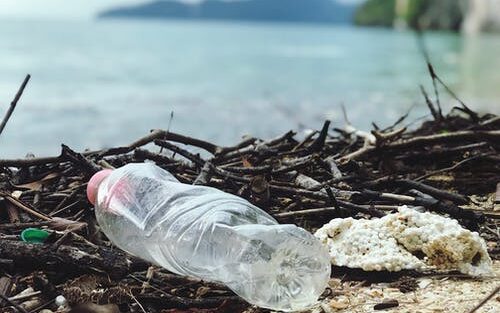Often goes unnoticed, yet one of the biggest threats to the environment is plastic trash that gets collected in lakes, rivers, ocean and environment, causing dire threat to flora and fauna. World’s plastic usage has increased with urbanization, consumer needs and production. It is noteworthy that single-use plastic is the biggest threat to the environment, as people are used to throw away the plastic trash without using proper disposal methods.
𝐇𝐚𝐯𝐞 𝐲𝐨𝐮 𝐞𝐯𝐞𝐫 𝐧𝐨𝐭𝐢𝐜𝐞𝐝 𝐭𝐡𝐞 𝐦𝐚𝐠𝐧𝐢𝐭𝐮𝐝𝐞 𝐨𝐟 𝐩𝐥𝐚𝐬𝐭𝐢𝐜 𝐩𝐨𝐥𝐥𝐮𝐭𝐢𝐨𝐧? 𝐇𝐞𝐫𝐞 𝐚𝐫𝐞 𝐬𝐨𝐦𝐞 𝐬𝐭𝐚𝐭𝐬.
It is reported that about 8.3 billion tons of plastics have been produced since 1950 out of only 9% have been recycled. 12% have been burned and the remaining 79% have ended up in the environment. Up to 12.7 million tons of plastic enter the ocean every year and plastic waste equivalent to a truckload enter the ocean every minute. Imagine the effect of plastic on marine species!
𝐈𝐦𝐩𝐚𝐜𝐭 𝐨𝐟 𝐩𝐥𝐚𝐬𝐭𝐢𝐜 𝐭𝐫𝐚𝐬𝐡 𝐨𝐧 𝐚𝐧𝐢𝐦𝐚𝐥𝐬
We are living in an era where ocean has become the main dumping ground for plastic trash. Plastics collected in the ocean directly impacts the life below water. It is a pathetic scenario with all marine species who have become the ultimate victims of plastic pollution. Not only marine species, other animals such as birds and most of the animals living on the land are also affected by this wide spread issue.
𝐈𝐦𝐩𝐚𝐜𝐭 𝐨𝐧 𝐧𝐚𝐭𝐮𝐫𝐚𝐥 𝐞𝐜𝐨𝐬𝐲𝐬𝐭𝐞𝐦𝐬
We know that plastic waste takes a much longer time to decompose than other materials, further disrupting the attempts made at environment conservation. Plastic thrown away to earth causes damage to soil, underground water resources, animals and also derails plant growth. Besides that, plastic trash pollutes those untouched natural resources and habitats. For example, the most beautiful places of the earth when explored by human beings, often get contaminated due to plastic trash, which is part of the irresponsible behavior of human beings.
𝐈𝐧𝐜𝐫𝐞𝐚𝐬𝐢𝐧𝐠 𝐧𝐞𝐞𝐝 𝐭𝐨 𝐦𝐢𝐧𝐢𝐦𝐢𝐳𝐞 𝐩𝐥𝐚𝐬𝐭𝐢𝐜 𝐮𝐬𝐚𝐠𝐞
There is an urgent need to minimize plastic pollution at a time when natural disasters are abundant around the world. The visible outcomes of plastic pollution are directly or indirectly the results of human actions. The need to minimize single-use plastics is a much talked of topic even though there has not been a feasible solution so far. Plastic pollution is largely apparent in most of the developing countries where policies and regulations are not in favor of minimizing plastic usage. But of late, many countries have resorted to ban plastic products to some extent. Unfortunately, it will not be the end for plastic dumping issue when it comes to developing countries with the growing economic challenges.
𝐏𝐮𝐛𝐥𝐢𝐜 𝐑𝐞𝐥𝐚𝐭𝐢𝐨𝐧𝐬 𝐚𝐧𝐝 𝐂𝐨𝐦𝐦𝐮𝐧𝐢𝐜𝐚𝐭𝐢𝐨𝐧𝐬 𝐭𝐨 𝐩𝐥𝐚𝐲 𝐚 𝐫𝐨𝐥𝐞
As a sector actively involved in communications, Public Relations services in Sri Lanka can play a vital role in creating much needed awareness among the public. More than that, it is a portal to voice out sustainability and corporate responsibility. Today, we see many corporates carrying out their sustainability campaigns with the help of Public Relations. Since communication is a powerful tool which can be used to make a change happen, it is in the capacity of PR to get involved in minimizing plastic pollution, given the potential to collaborate with stakeholders, influencers and volunteers.
𝐈𝐧𝐝𝐢𝐯𝐢𝐝𝐮𝐚𝐥 𝐫𝐞𝐬𝐩𝐨𝐧𝐬𝐢𝐛𝐢𝐥𝐢𝐭𝐲 𝐢𝐬 𝐭𝐡𝐞 𝐤𝐞𝐲
While the authorities can only ban plastic usage up to a certain extent, until there comes the potential for a plastic free society, it is up to each of us to make sure that we minimize plastic usage and practice responsible disposal of plastic trash, which is the most feasible solution at hand for the moment. If individuals cannot be responsible for plastic disposal, how can we think of a plastic-free future? So let’s make sure that we do not contribute to the plastic pollution and intensify the current hazardous situation.



